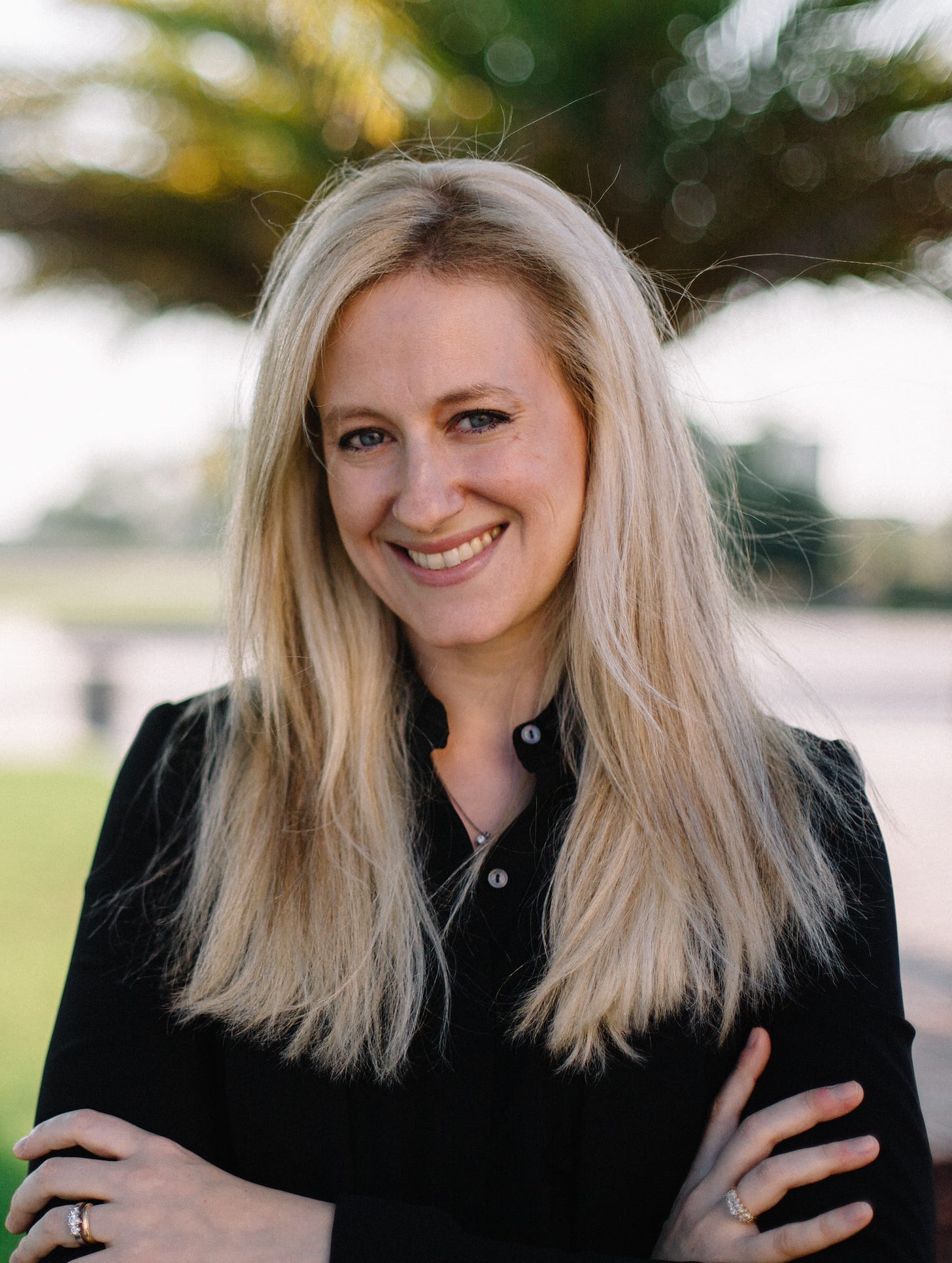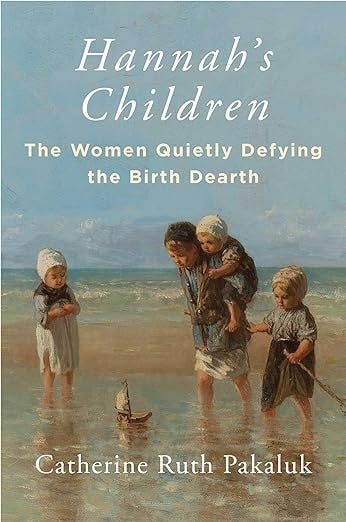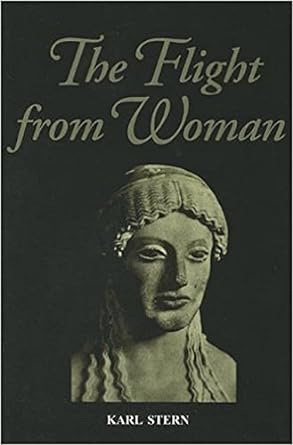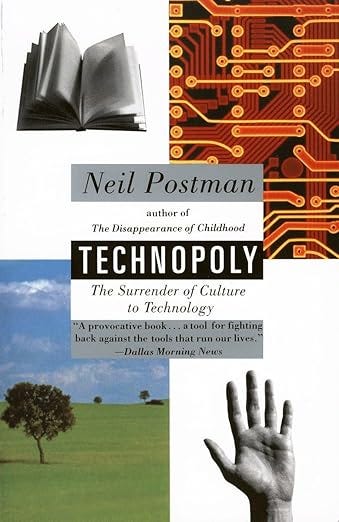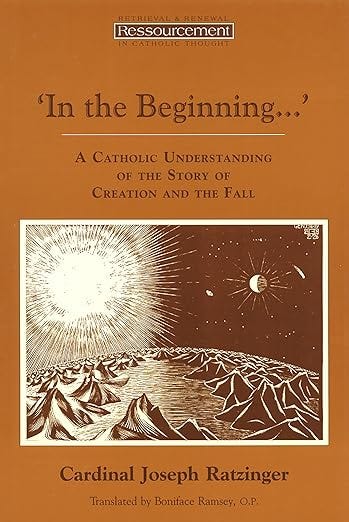Episode 59: Catherine Pakaluk, Ph.D - A Life Marathon: On having a large family in a consumerist culture amidst declining marriage and birth rates
Manage episode 430730195 series 3581187
In this episode of the Moral Imagination Podcast I speak with Catherine Pakaluk about her book Hannah’s Children: The Women Quietly Defying the Birth Dearth
Over the last 200 years, we have seen a decline in birth rates in the United States and abroad, especially in Western countries. Most European countries are no longer at replacement rates and face serious population decline. Reuters reported that Japan’s population will decline by a staggering 30% in the next fifty years.
In the United States, in the year 1800, the typical woman would have about 7 or 8 children. By 1900 that number was cut in half to 4. By 2000 the number cut in half again to about 2 children, which is just about replacement rate. The Wall Street Journal recently reported on the the record-low birthrate in the US, and how increasing numbers of people plan to have no children.
In the midst of declining marriages, childlessness, and low birthrates, Pakaluk studied the increasing minority of women in the Western world who have chosen to have five or more children — the top 5% of childbearing.
Her book is a mix of ethnography, sociology, and economics, and includes a critique of the dominant model of social and economic research.
One thing that stands out with many of the women she interviews is how at some point a shift took place in their attitude — from seeing children as a choice, like a consumer good among other choices, to a different attitude of receptivity and openness to having another child, and then another.
She talks about the many forces that promote small families — the cost of children, overpopulation propaganda, education, feminism, environmentalism, consumerism and more. But Pakaluk emphasizes that encouraging women to have more children cannot be addressed simply by implementing pro-family policies like some countries have tried to do. Good policy is not insignificant — for example in most US states parents who want to send their children to religious schools have to pay twice for school through tax and tuition. But she argues that the real problems go much deeper. They are religious, spiritual, and metaphysical: a vision of life that sees being as good, children as a blessing, and family as essential for a good life.
Pakaluk compares having a large family to running a marathon—except longer, harder, and more fulfilling. Government family policy would be like giving everyone a pair of good running shoes for the marathon. That could help, but it won’t get most people to run. There must be a deeper motivation, and this almost always comes from religious belief and the virtues of faith, hope, the goodness of being, and the value of generosity and sacrifice that come from it.
Themes and Topics we discuss include:
Demographics and Population Decline
Family policies
Feminism
Education
Career vs Family and Children
Conflicting Desires
Difficulties and Advantages of a Large Family
The Role of Religious Schools
Community
Plausibility Structures
Consumerism
Individualism
Social Pressure
Religious Freedom
Fortitude, Patience
Boys and Girls Sports
Novak Djokovic and Kobe Bryant
Voting Patterns
Climate
Creation and the Goodness of Being
and more
Biography
Catherine Ruth Pakaluk (Ph.D, 2010) joined the faculty at the Busch School in the summer of 2016, and is the founder of the Social Research academic area, where she is an Associate Professor of Social Research and Economic Thought. Formerly, she was Assistant Professor and Chair of the Economics Department at Ave Maria University. Her primary areas of research include economics of education and religion, family studies and demography, Catholic social thought and political economy. Dr. Pakaluk is the 2015 recipient of the Acton Institute’s Novak Award, a prize given for “significant contributions to the study of the relationship between religion and economic liberty.”
Pakaluk did her doctoral work at Harvard University under Caroline Hoxby, David Cutler, and 2016 Nobel-laureate Oliver Hart. Her dissertation, “Essays in Applied Microeconomics”, examined the relationship between religious ‘fit' and educational outcomes, the role of parental effort in observed peer effects and school quality, and theoretical aspects of the contraceptive revolution as regards twentieth century demographic trends.
Beyond her formal training in economics, Dr. Pakaluk studied Catholic social thought under the mentorship of F. Russell Hittinger, and various aspects of Thomistic thought with Steven A. Long. She is a widely-admired writer and sought-after speaker on matters of culture, gender, social science, the vocation of women, and the work of Edith Stein. She lives in Maryland with her husband Michael Pakaluk and eight children.
Resources
Joseph Ratzinger: Homilies on Genesis
On the Jewish - Christian Idea of the Goodness of Being
4集单集
